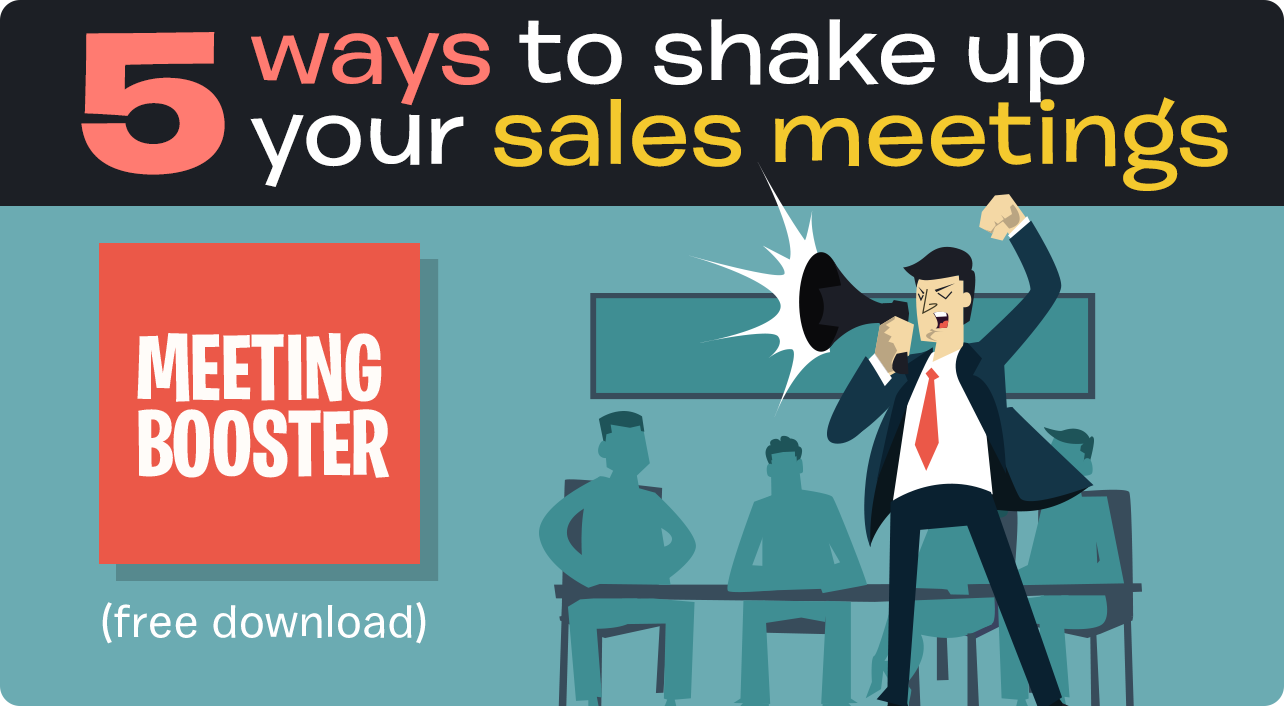- sales
- Blog post
A surprise pitfall that can kill your sale: Too much enthusiasm
We’ve all heard the same mantra over the years, from our first job in sales to our most recent: Enthusiasm is contagious, right? It transfers emotion from the salesperson to the prospect, right? Enthusiasm breeds more enthusiasm, correct? Enthusiasm sells, doesn’t it?
The correct answer is “sometimes,” says sales coach Skip Anderson. And the plain fact is that sometimes enthusiasm doesn’t work in selling. Some top salespeople get the sale without ever getting excited. And some sunny souls consistently walk away empty handed.
There are two ways enthusiasm can work against you, says Anderson:
1. Emotional mismatch
Have you ever witnessed a sales interaction with a salesperson who is overly enthusiastic talk to someone who seems naturally reserved? Ouch, it hurts just to think about it.
All humans have a natural “enthusiasm comfort level,” whether in a selling situation or a nonsales situation. This enthusiasm comfort level helps determine how we’ll react to enthusiasm in others, including salespeople selling to us.
But using enthusiasm appropriately isn’t as simple as “mirroring” your customer’s own energy level. Some low-key people like to spend time with high-energy firecrackers. But some enthusiastic customers want to have the spotlight all on themselves, and will see your own enthusiasm as a threat.
Instead of just trying to match your prospect’s energy level, watch to see how your client responds to your enthusiasm. If you’re getting smiles and nods, great. If you’re getting fidgets, averted eyes or other signs of discomfort, tone it down.
2. It doesn’t ring true
The other time when enthusiasm can backfire: When clients don’t buy it. That can happen when you confuse enthusiasm with passion. Without passion, “enthusiasm” is at best just a personality trait, and at worst an act. It won’t help you win sales. Passion, on the other hand, is always an asset. And sometimes the quietest person in the room is the most passionate.
Here are some ways to communicate your passion to buyers:
- Comprehensive knowledge of your field. Buyers can quickly tell whether a salesperson is just looking for a quick sale or is deeply committed to their business. You can’t fake knowledge; you must put in the time. Mere enthusiasm, by contrast, can simply be turned on and off.
- Intense curiosity. No matter how much they already know, passionate people always want to discover more. When they ask buyers questions, their goal isn’t simply to find out what they can sell to the buyer; it’s to learn something new.
- A point of view. Passionate sellers care deeply about their business. So naturally they develop some strong opinions. When you say to a customer, “Here’s what I think and why,” it shows you really are committed to what you do.
- A desire to help. Salespeople who passionately believe in what they sell can’t wait to roll up their sleeves and go to work for a customer – because they know the buyer will benefit.
The role of enthusiasm
So where does this leave the role of “enthusiasm” in selling? We can safely reach the following conclusions from this exploration:
- Appropriate enthusiasm is an asset in the selling profession
- Inappropriate enthusiasm is a negative factor, and
- Enthusiasm is no substitute for passion. When you’re passionate about what you do, your enthusiasm will come through naturally.
Action steps to take
Clearly this is an inexact science. The best place to start is at the extremes. Think of someone who is over-the-top enthusiastic about most things, and someone who’s ultra-reserved (but still has a pulse!). Give yourself a ranking by comparison.
If you have a lot of enthusiasm, don’t run away from it! But think about how you’re expressing it. Use it as a way to demonstrate your passion for your work and your customers.
And if you’re tempted to “dial up” your enthusiasm just to get a sale, be advised that it probably won’t work. Enthusiasm isn’t a trick or technique. When it’s genuine, it comes from your passion for what you sell, the organization you represent and the value you provide to your customers. Find your own passion first, and genuine enthusiasm will follow.

Get a demo of all our training features
Connect with an expert for a one-on-one demonstration of how BTS Total Access can help develop your team.



